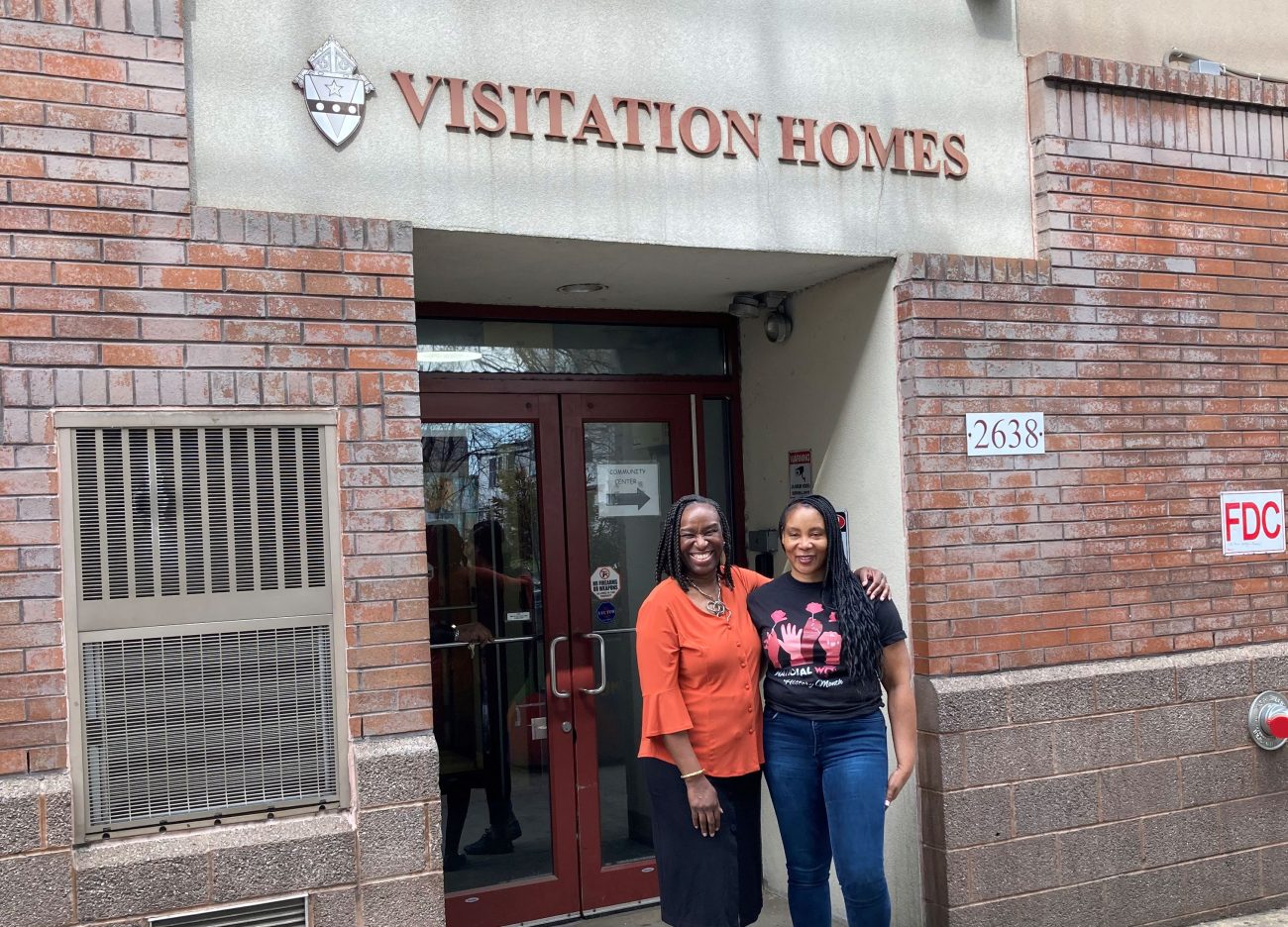Shawna Murray remembers experiencing homelessness first-hand when she emigrated to the U.S. from the Caribbean with her family in the 1980s. She was only eight years old at the time. Her mother struggled to find basic resources for her family including shelter, food, and clothing.
“Sometimes, she wasn’t treated as a person,” says Murray, reflecting upon her mother’s experiences during that time.
Though many people often want to put challenging times behind them, the hardships Murray experienced during childhood inspired her. She has dedicated her career to supporting at-risk children, youth, and families. Many of them live in temporary shelters or “live couch-to-couch until they can find stable housing,” says Murray.
Raised Pentecostal Baptist, Murray says faith is what motivates her to help and care for families, and to build healthy relationships with people in the community.
For six years, Murray has worked as a Catholic Charities of Philadelphia (CCoP) case manager and family support coordinator with Visitation Homes in North Philadelphia, a permanent supportive 18-unit housing program that serves families experiencing homelessness and assists them with transitioning to independent living and self-sufficiency.
A special family Murray encountered early on included a young mother with two sons aged 3 and 8. They came to Visitation Homes after fleeing a domestic violence situation in South Carolina.
The mother was forced to leave behind her 5-year-old daughter in South Carolina due to a custody issue, and reunification of her family was the mother’s main goal.
Though she has no legal expertise, Murray took on performing legal research on the mother’s behalf and found ways to connect the mother with a lawyer and other legal resources so that the mother was able to obtain custody of her daughter, which happened two years later.
CCoP also helped the mother with travel expenses so that she could appear in person at the South Carolina courthouse.
“Without financial support, she wouldn’t have been able to do that,” said Murray, reflecting on the mother’s situation.
During her stay at Visitation Homes, the mother also worked on obtaining her GED and employment, and she was eventually able to move her family into their own rental home.
“There were a lot of challenges, and there were times she felt like giving up, but we just kept encouraging her to not give up,” Murray said.
Murray, who graduated from La Salle University in 2020 with a bachelor’s degree in social work, says she was inspired to work for CCoP by one of her college professors, Renee Hudson-Small, MSW, an assistant director for CCoP overseeing housing and homeless services.
Murray first worked as a residential aide at Mercy Hospice, a CCoP residential program that helps women in recovery and their families, before she transferred to Visitation Homes.
Helping families is different from helping individuals, says Murray, “because everybody in the family has their own needs.”
Though Visitation Homes holds a maximum of 18 families, Murray’s usual case load is about 37-45 cases, including parents and their children.
What’s unique about the Visitation Homes’ program, says Murray, is that it offers semi-permanent housing, which allows families to eventually transition into independent living.
Whereas many transitional housing programs tend to have a hard deadline of about a year, semi-permanent housing provides a more flexible timeline and supportive environment for families to adjust to independent and self-sufficient lives.
When a new family comes to Visitation Homes, a case manager, such as Murray, performs an assessment to determine what the family’s needs and barriers are.
A plan with goals is created, including what the family needs to work on to achieve their goals. Plans include a variety of activities, including getting a GED, a better job, attending workshops on mental health, trauma healing, and financial literacy.
“Once families are able to remove all their barriers, they can transition into renting their own apartment or own their own home,” says Murray.
Without a place like Visitation Homes, Murray says the families she helps would be “lost in the system” and unable to find the resources they need.
“It would be a devastating experience for them,” she says.
Murray aims “to meet the families where they are and help them remove any barriers” during their stay at Visitation Homes, “so they can improve their quality of their lives.”
“I work with them, but I don’t judge them,” she said, “because homelessness can happen to anyone,” which Murray well-knows from her own personal experience.
“I treat them with respect,” she said. “I try to show them kindness and support so we can build trusting relationships.”
***
This piece was previously published in Catholic Charities of Philadelphia’s Annual Report. View the full report here.
PREVIOUS: Delco Housing Case Manager Provides Shelter, Services, and Friendship to the Unhoused
NEXT: Driven by Prayer, Social Worker Leaves Retirement to Enrich Lives of Area Seniors




Share this story